Abstract
OBJECTIVE. This study explores the relationships among donations to not-for-profit hospitals, the returns provided by these hospitals, and fund-raising efforts. It tests a model of hospital behavior and addresses an earlier debate regarding the supply price of donations. DATA SOURCES. The main data source is the California Office of Statewide Health Planning data tapes of hospital financial disclosure reports for fiscal years 1980/1981 through 1986/1987. Complete data were available for 160 hospitals. STUDY DESIGN. Three structural equations (donations, returns, and fund-raising) are estimated as a system using a fixed-effects, pooled cross-section, time-series least squares regression. PRINCIPAL FINDINGS. Estimation results reveal the expected positive relation between donations and returns. The reverse relation between returns and donations is insignificant. The estimated effect of fund-raising on donations is insignificantly different from zero, and the effect of donations on fund-raising is negative. Fund-raising and returns are negatively associated with one another. CONCLUSION. The empirical results presented here suggest a positive donations-returns relations and are consistent with a positive supply price for donations. Hospitals appear to view a trade-off between providing returns and soliciting donations, but donors do not respond equally to these two activities. Attempts to increase free cash flow through expansion of community returns or fund-raising activity, at least in the short run, are not likely to be highly successful financing strategies for many hospitals.
Full text
PDF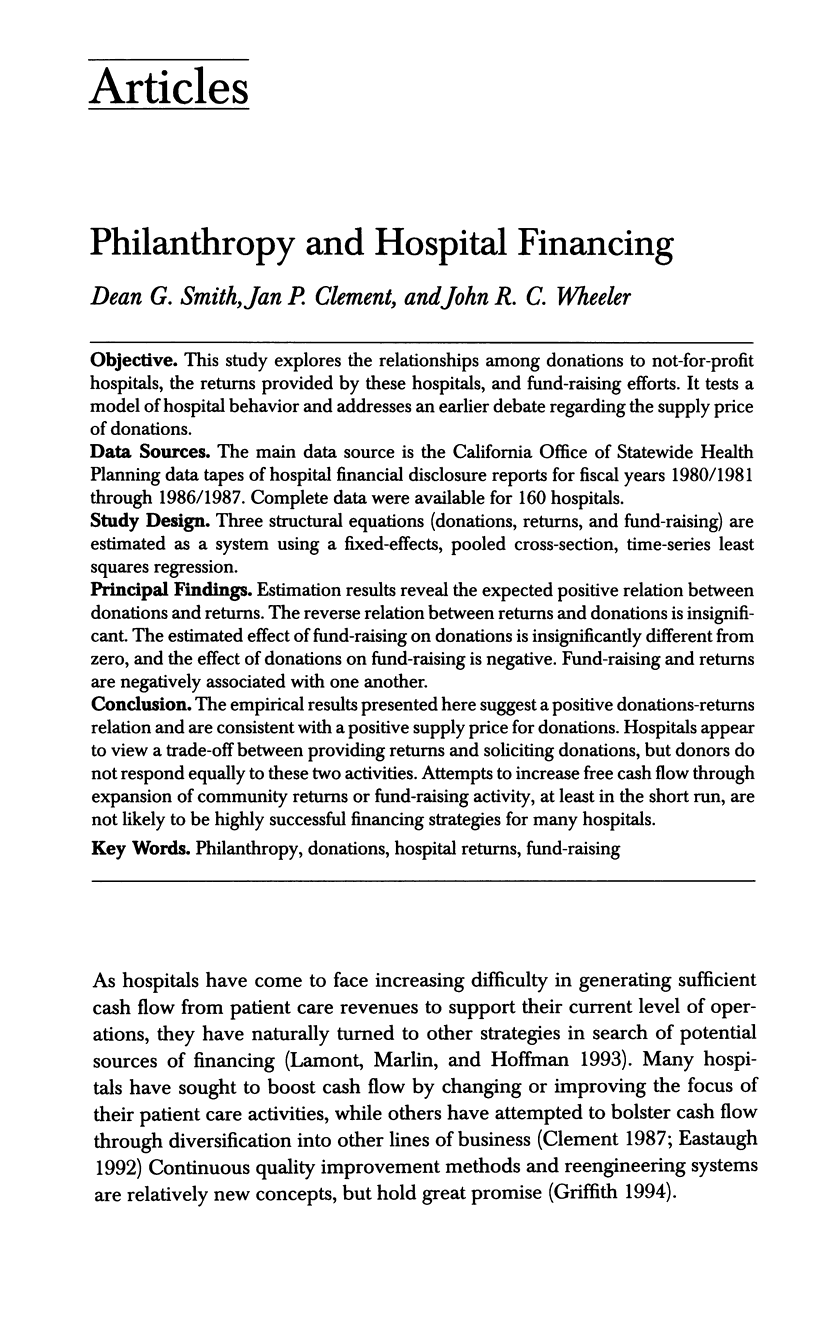
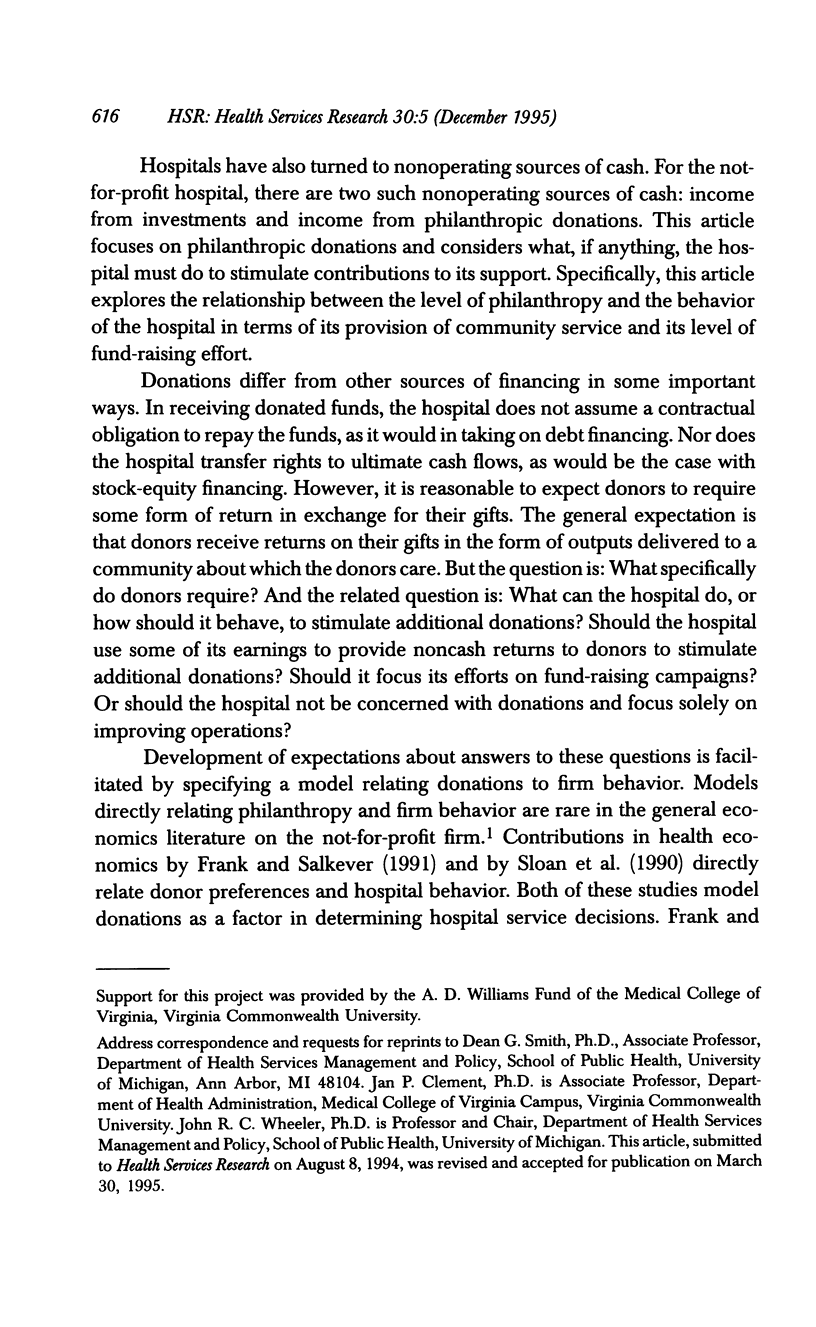
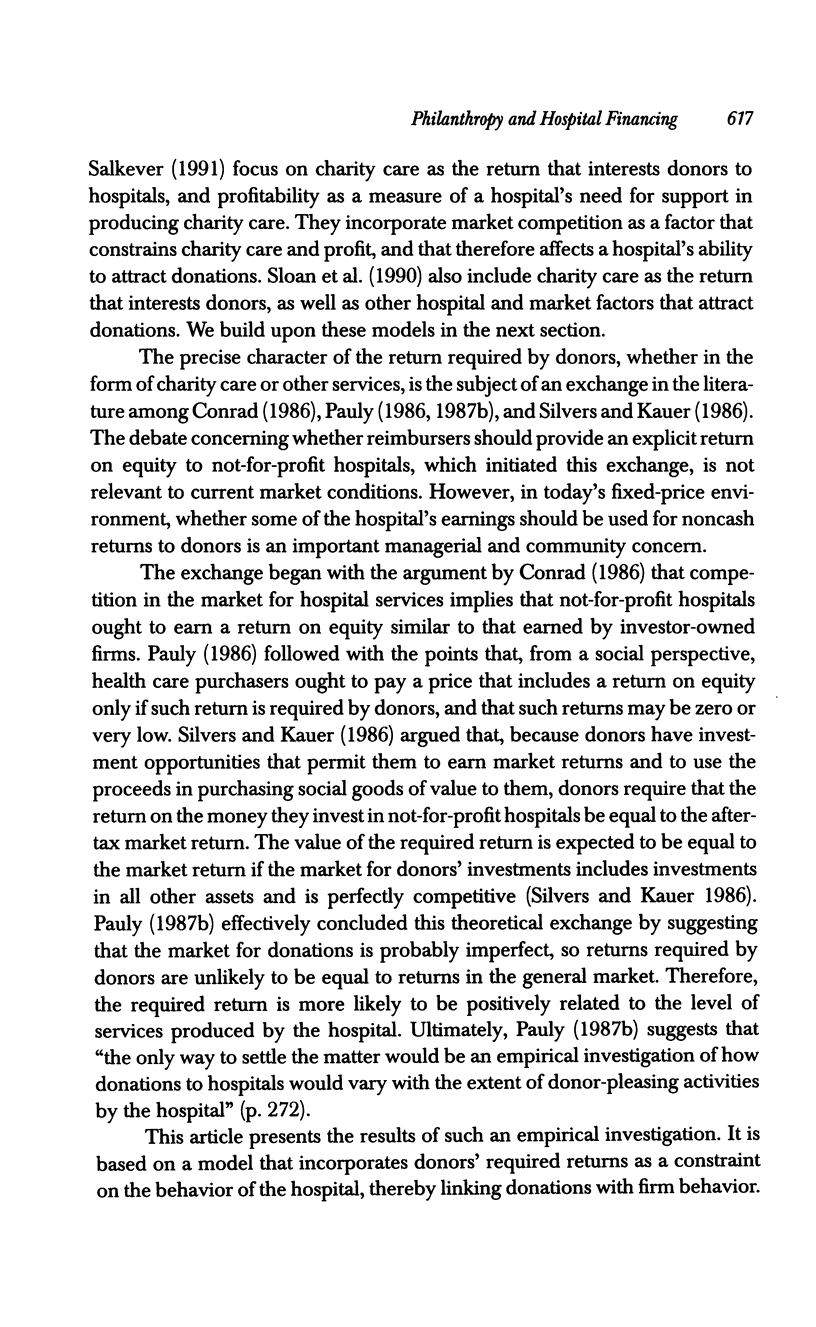
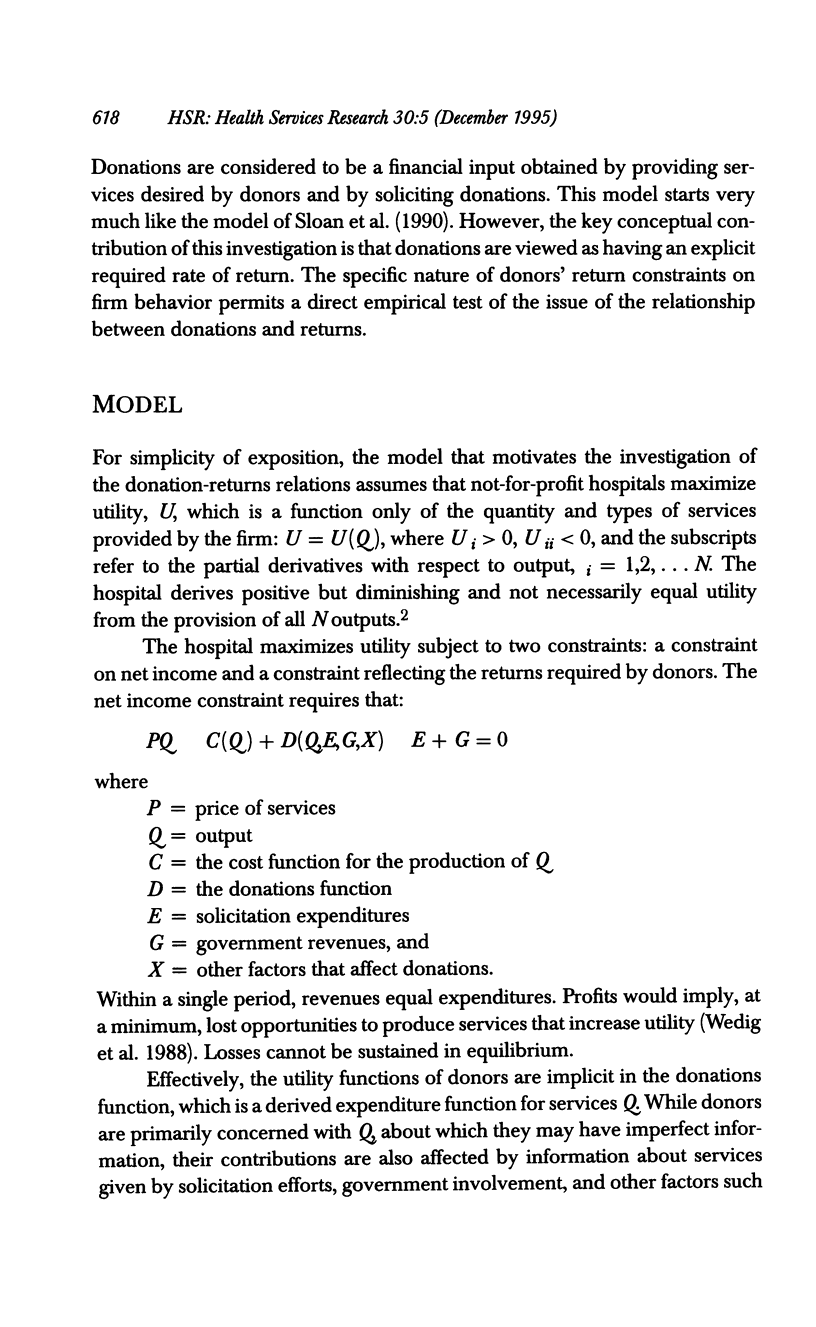
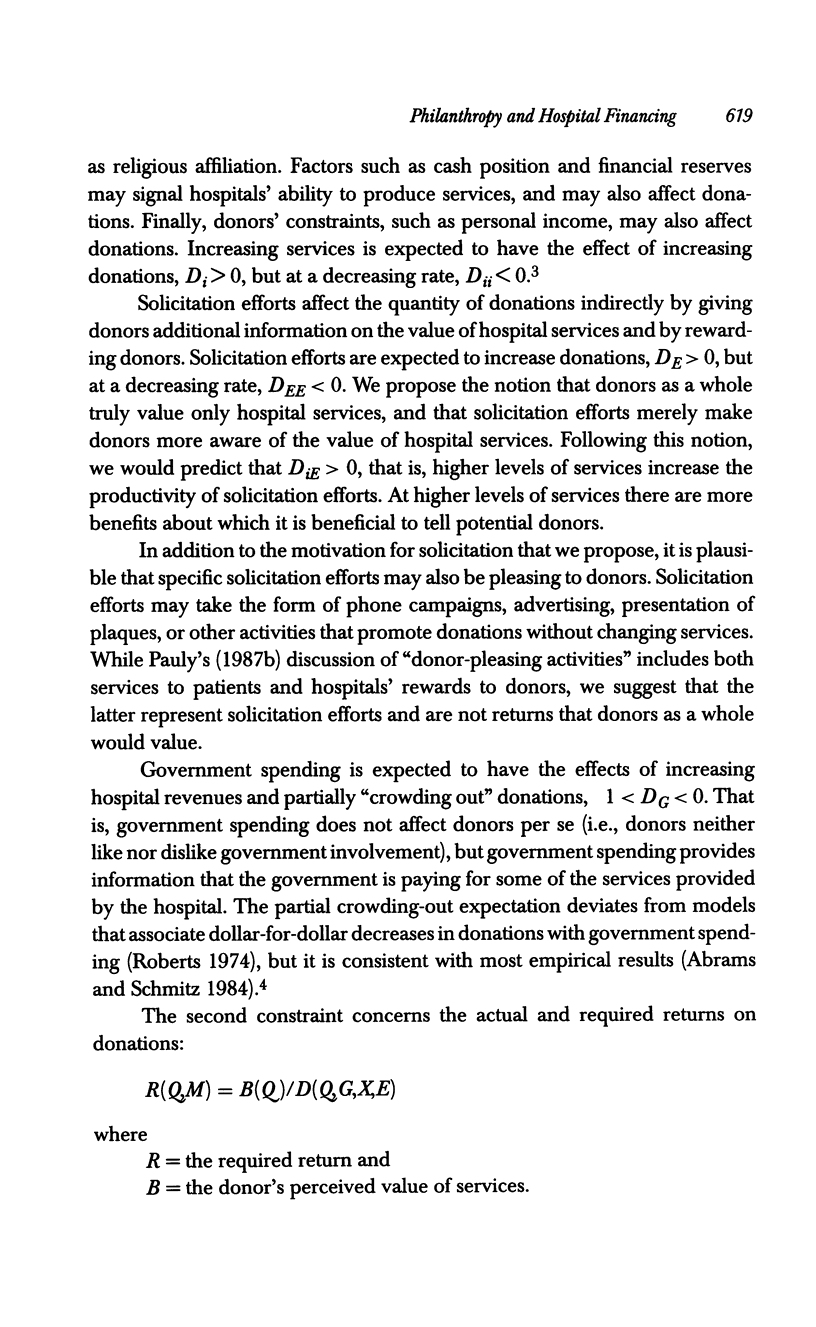
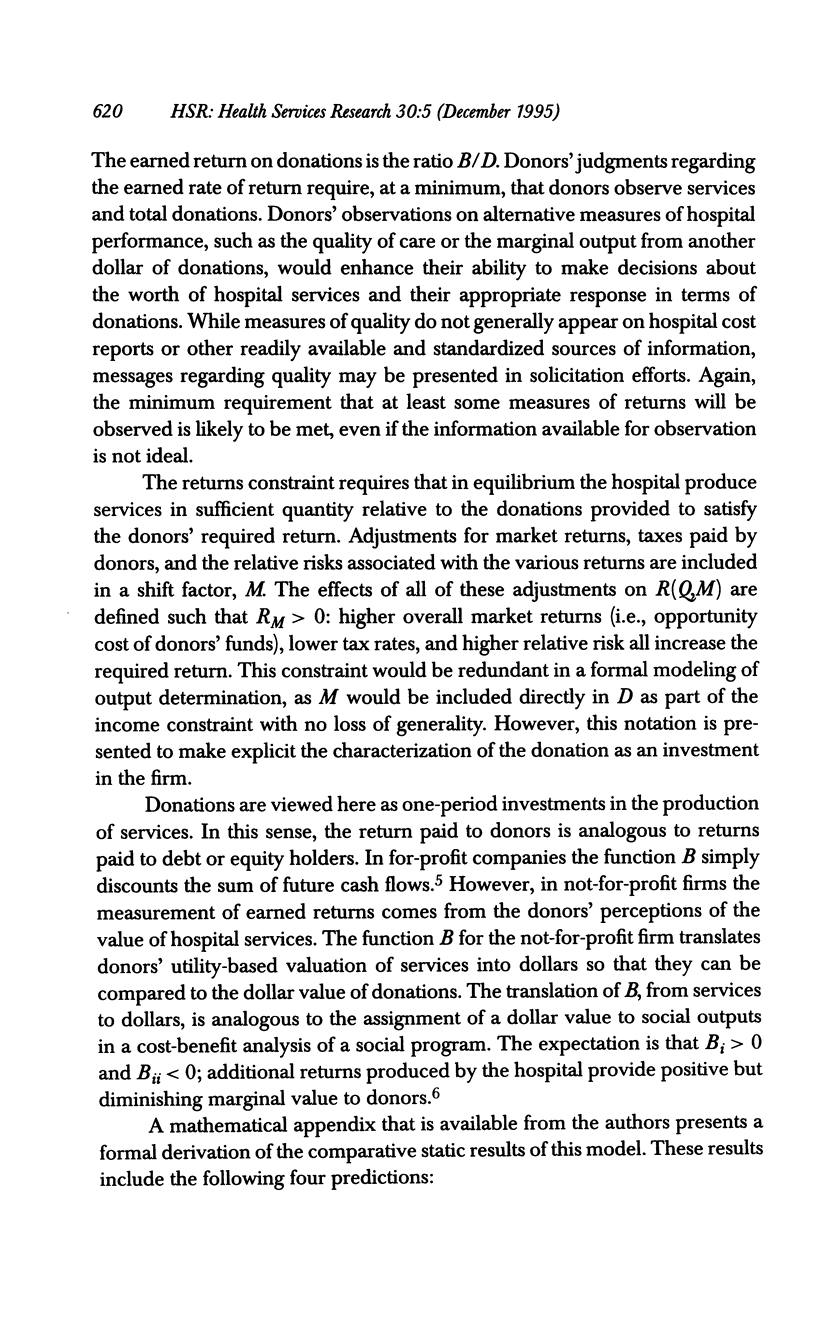
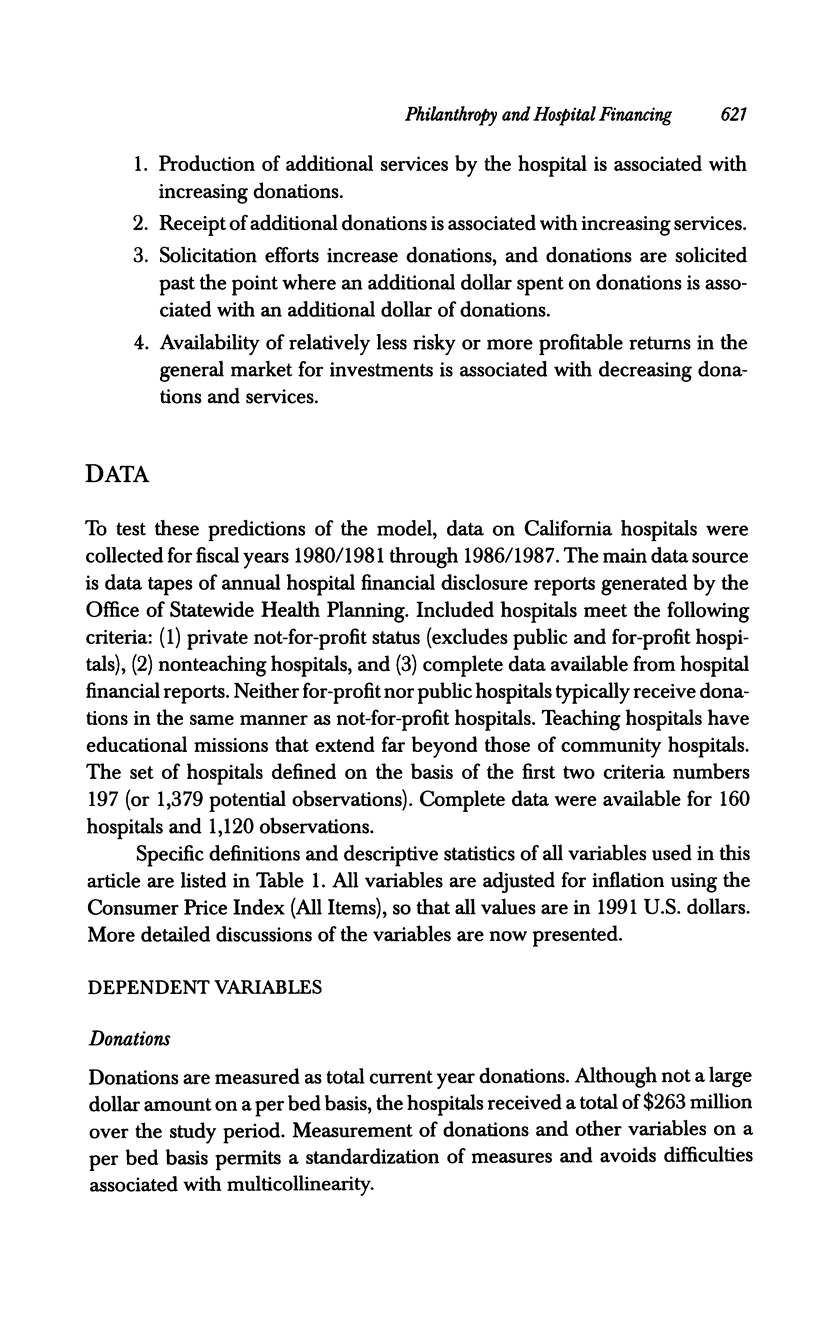
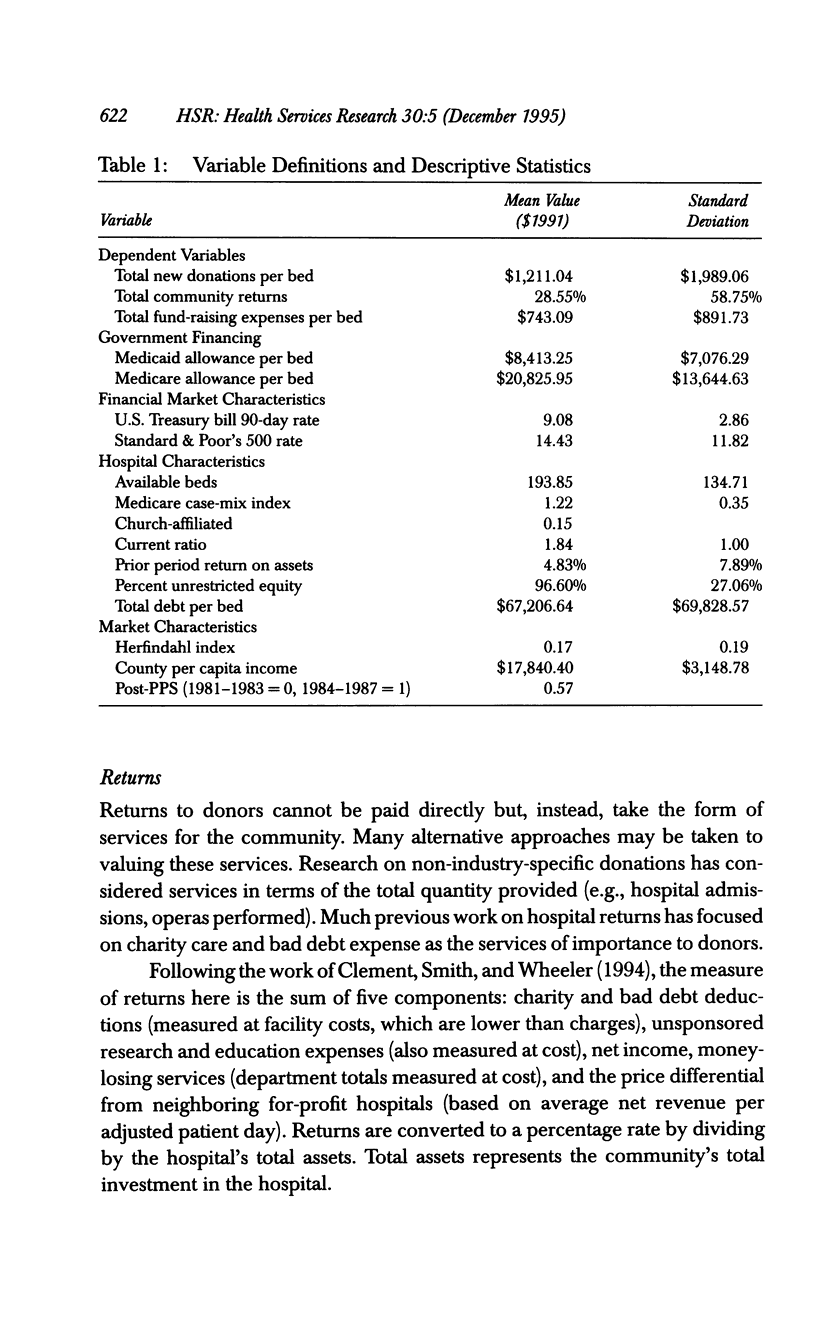
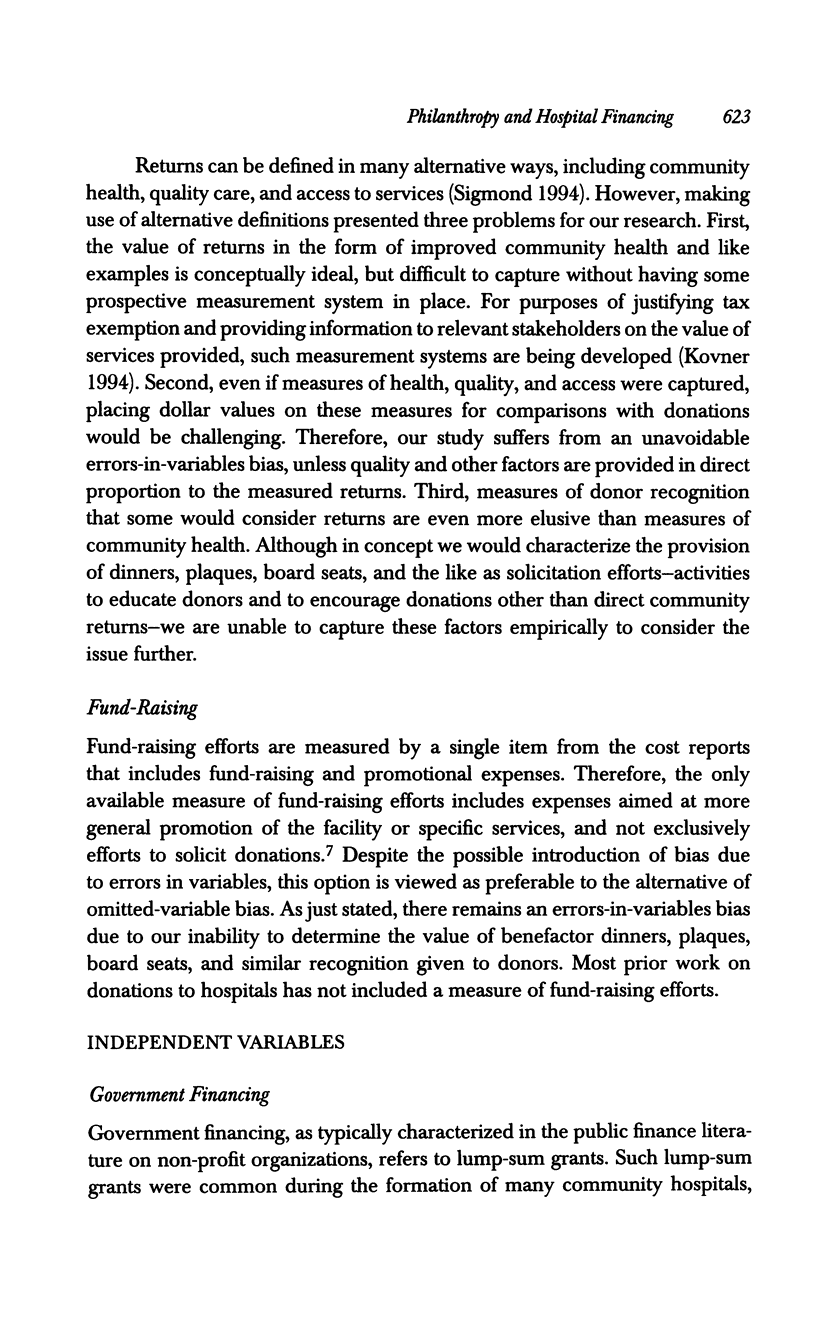
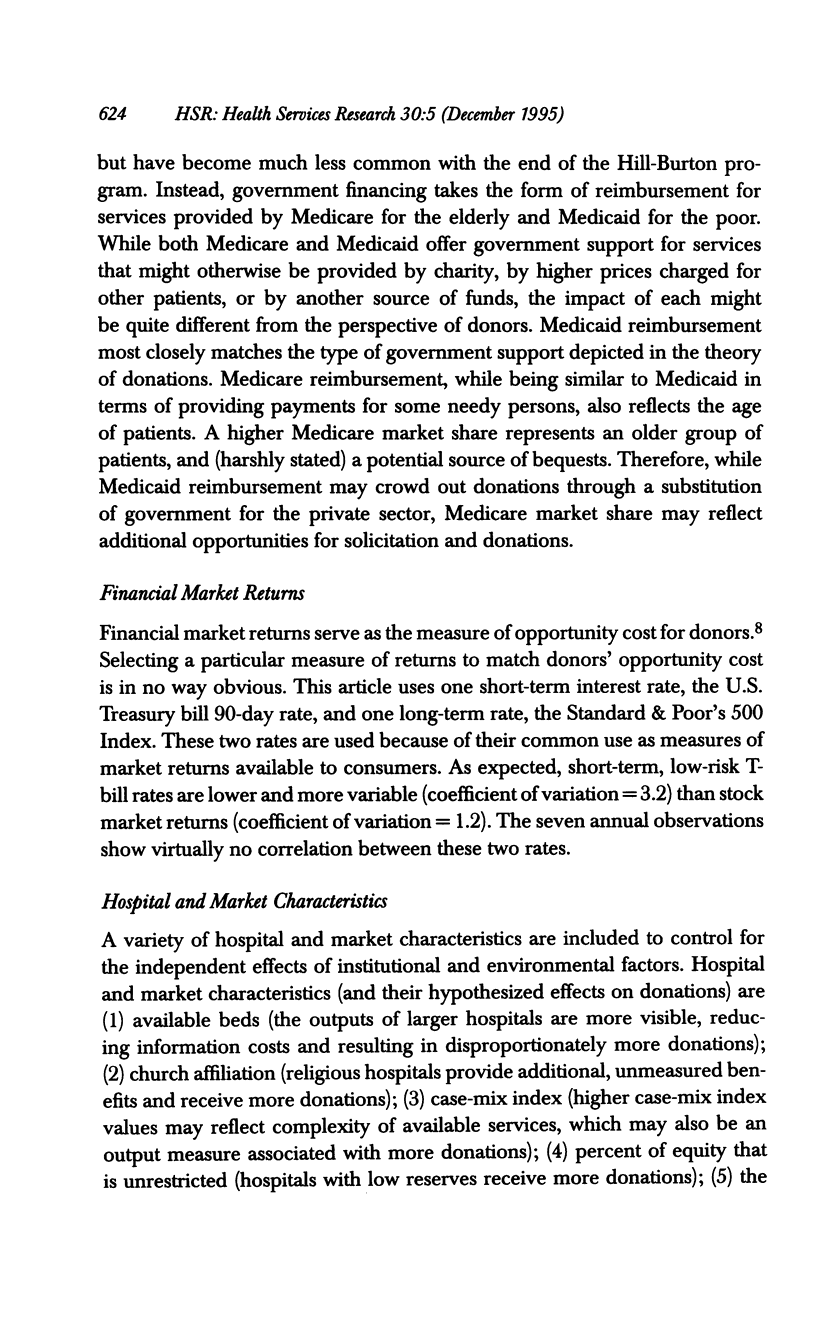
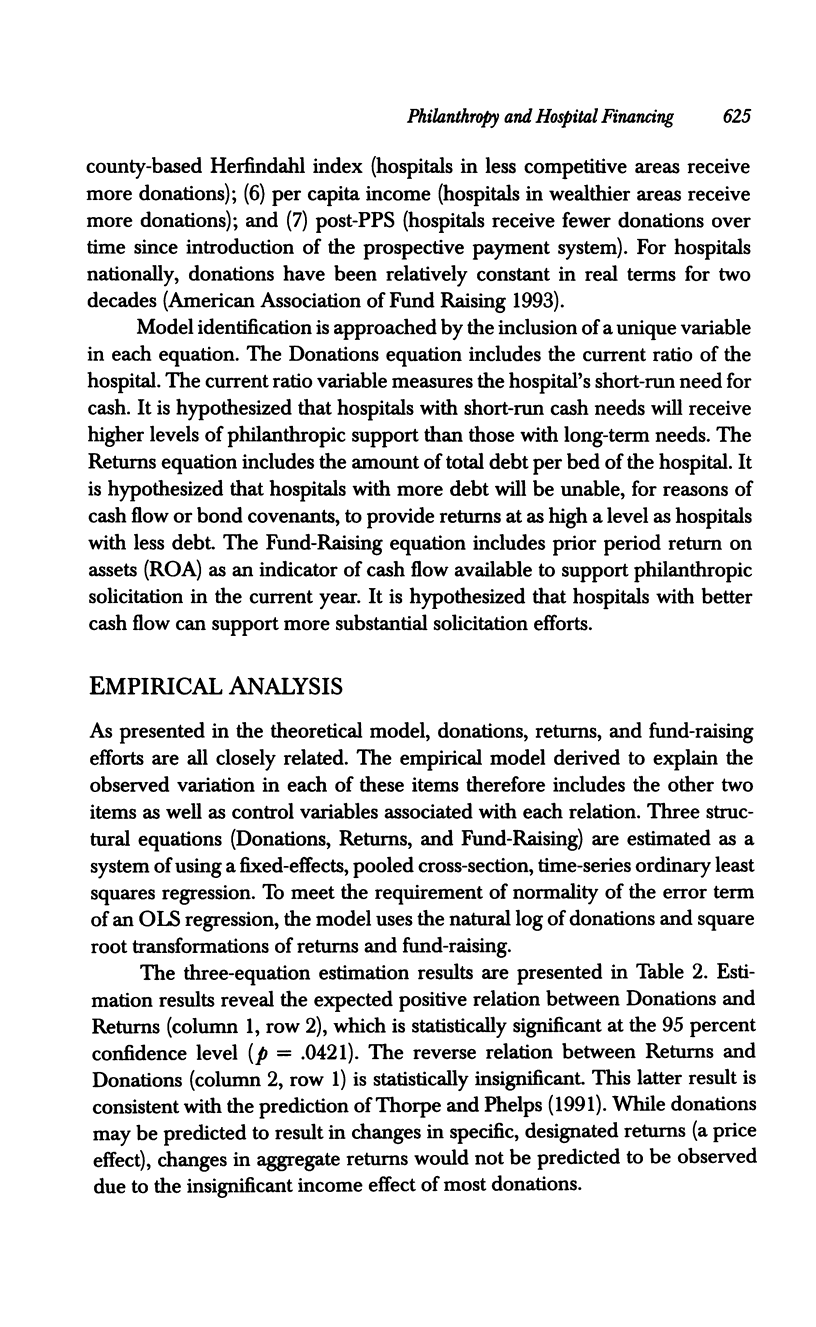
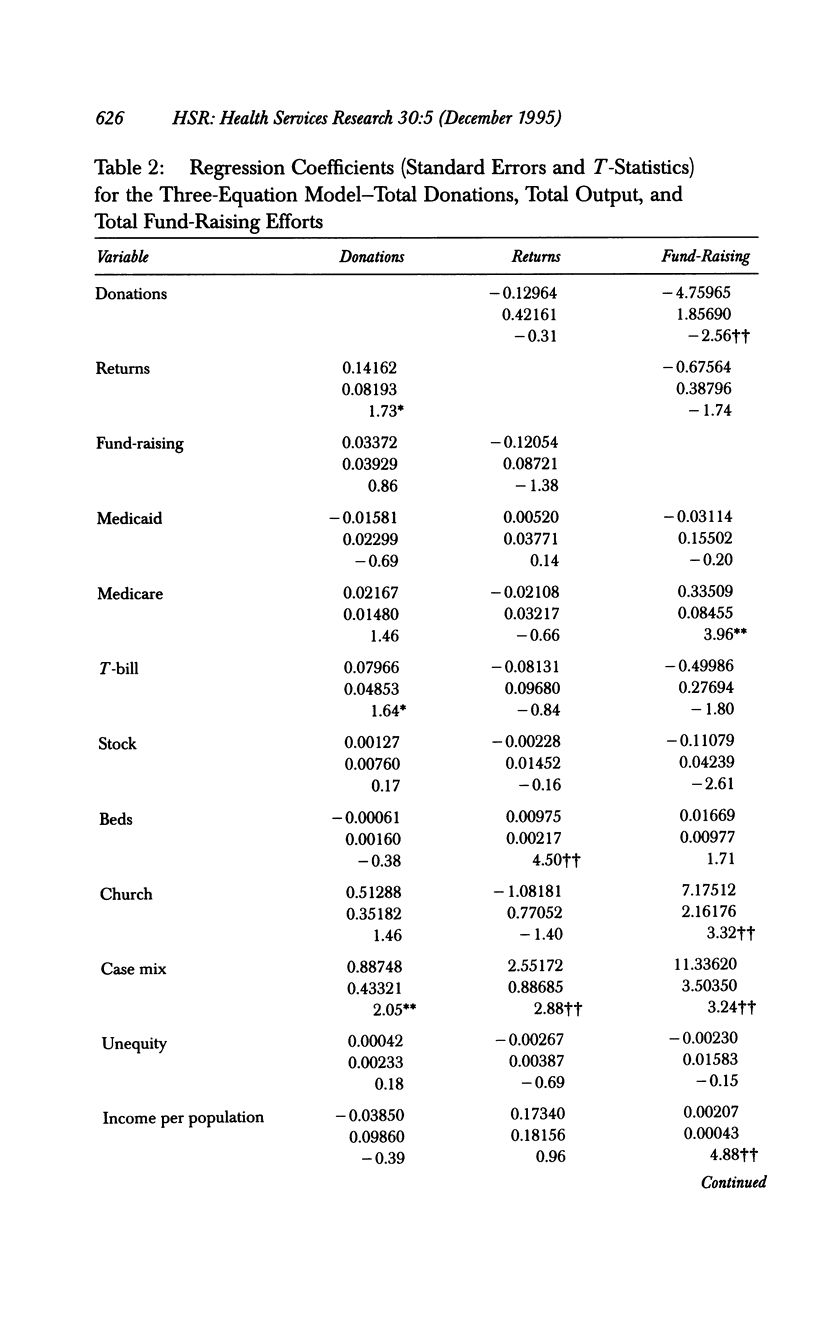
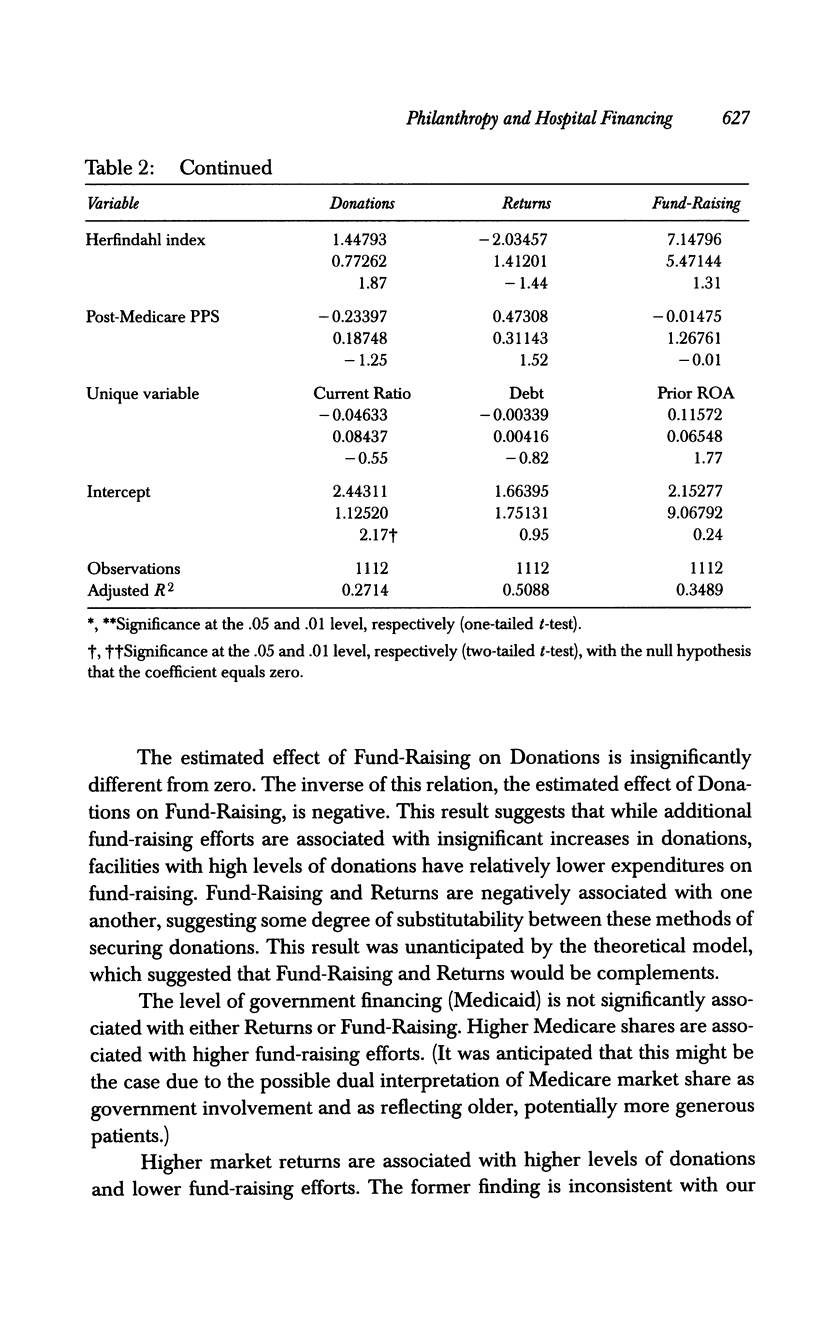
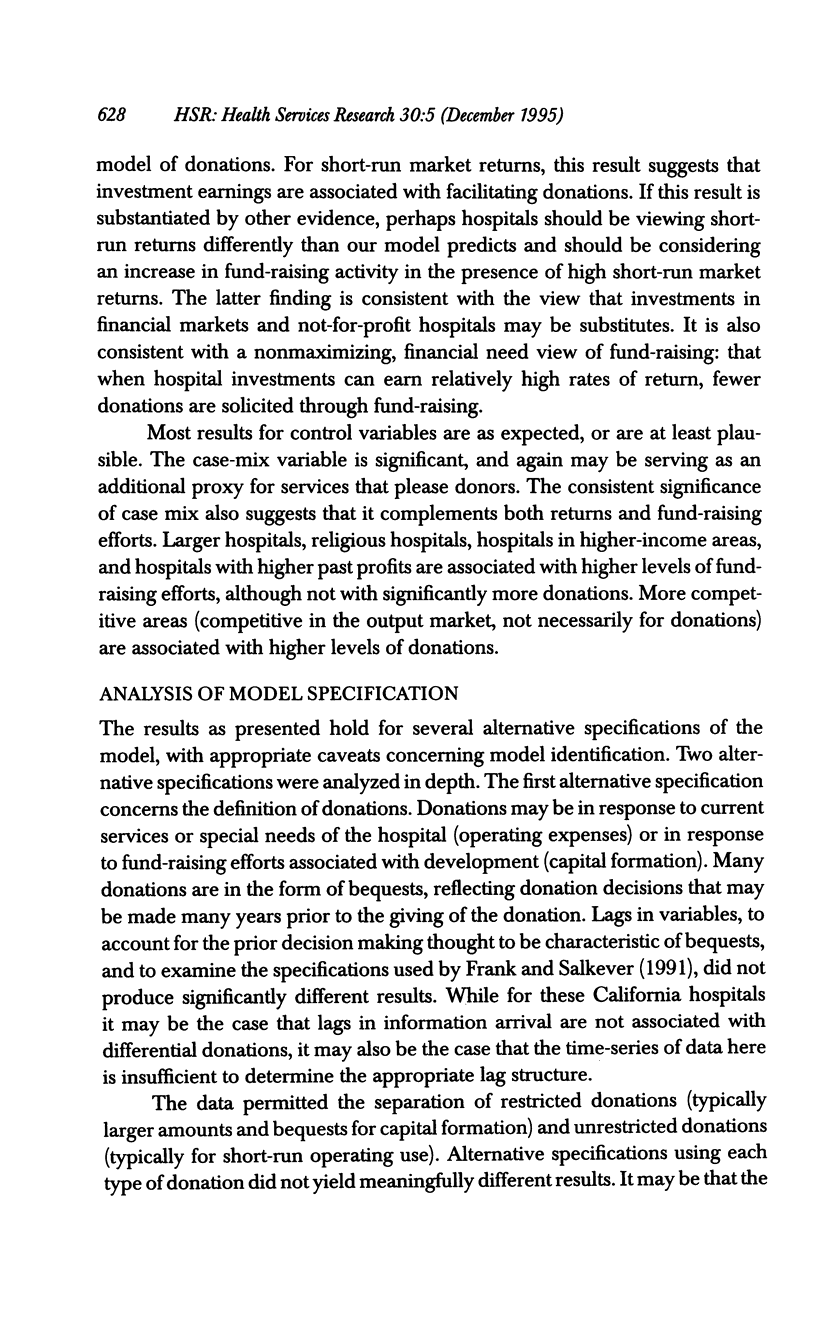
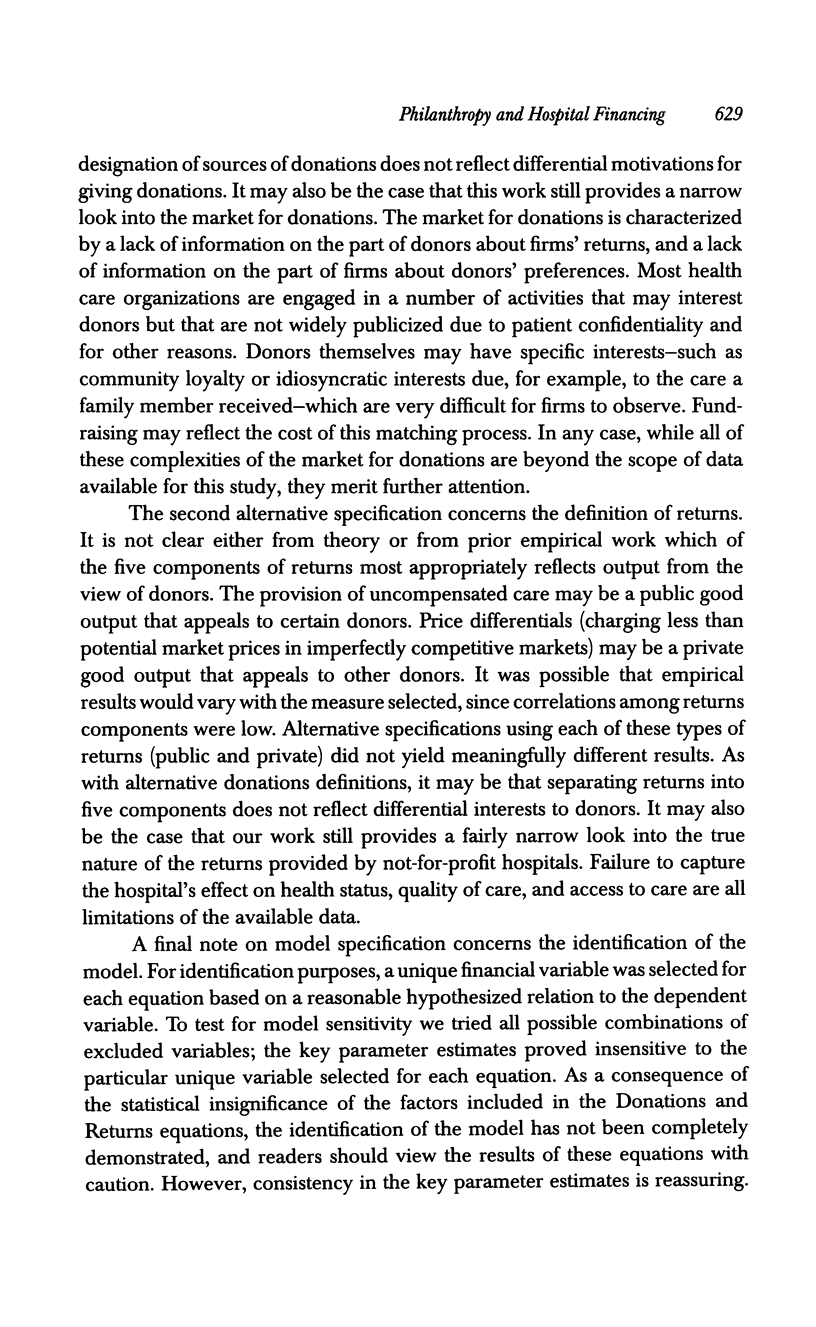
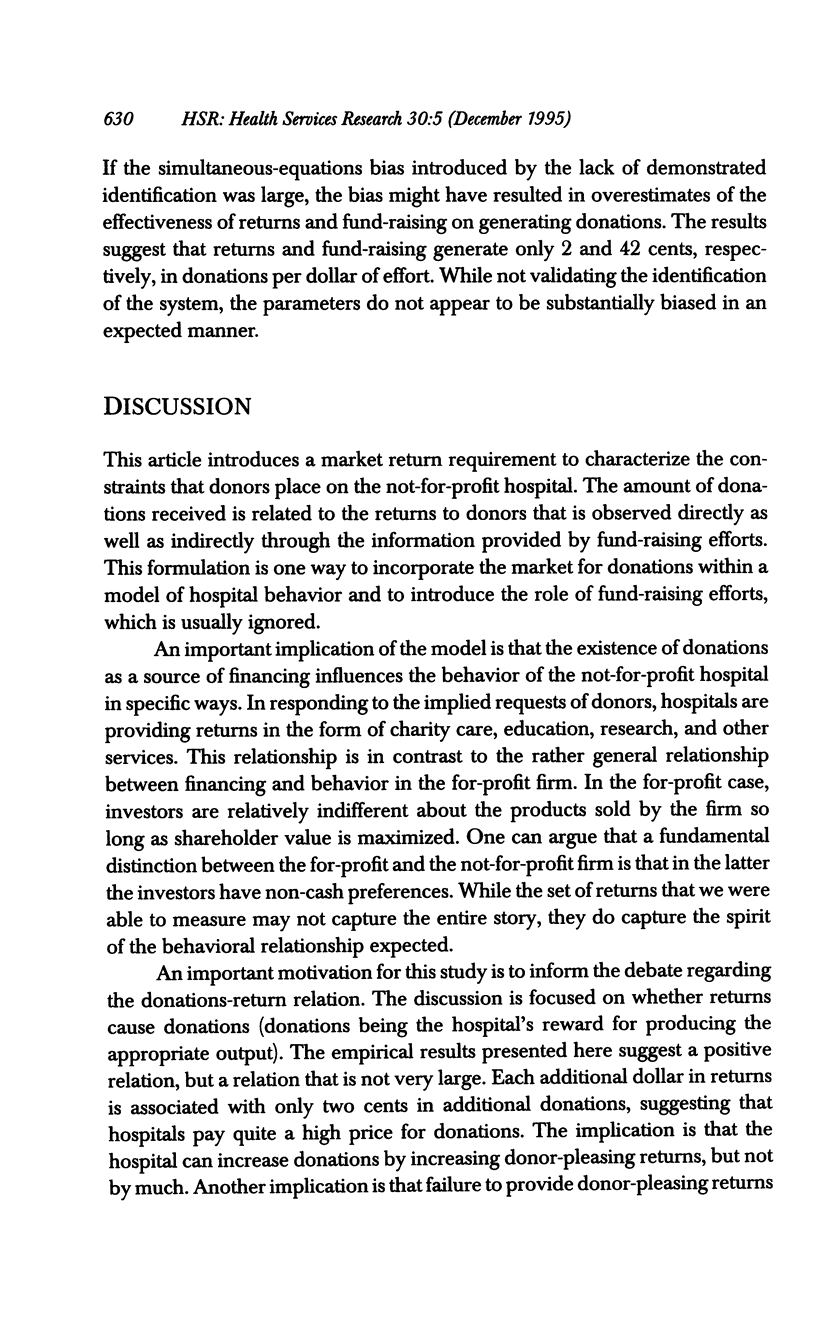
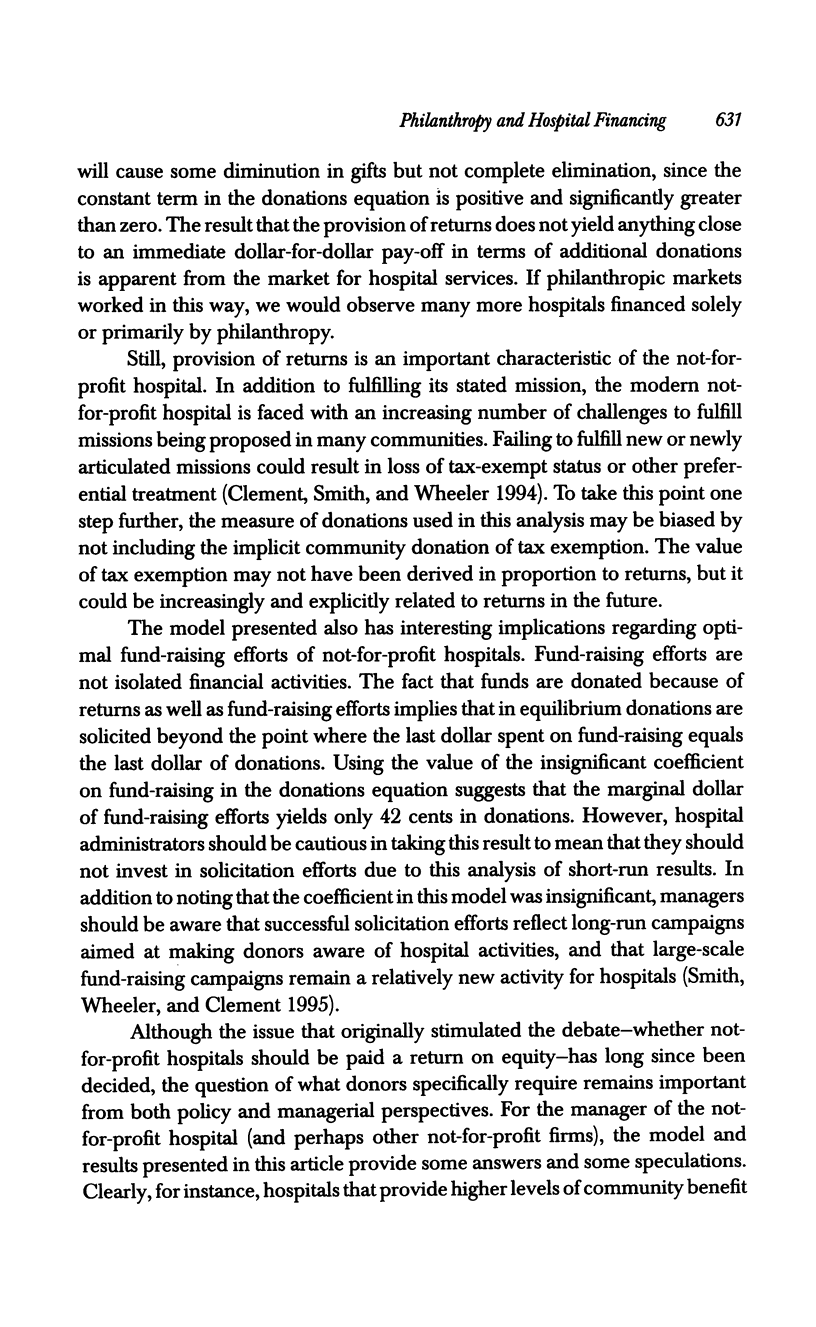
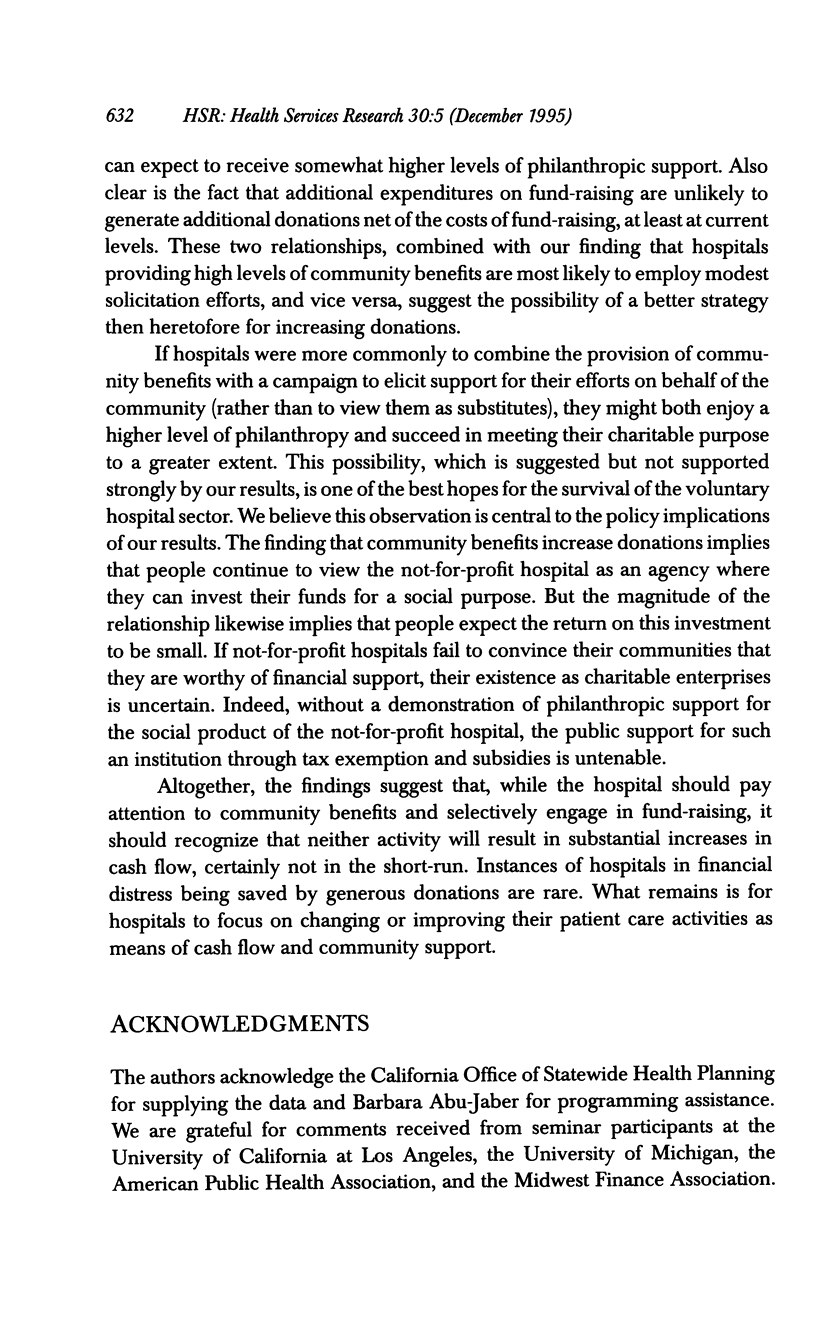
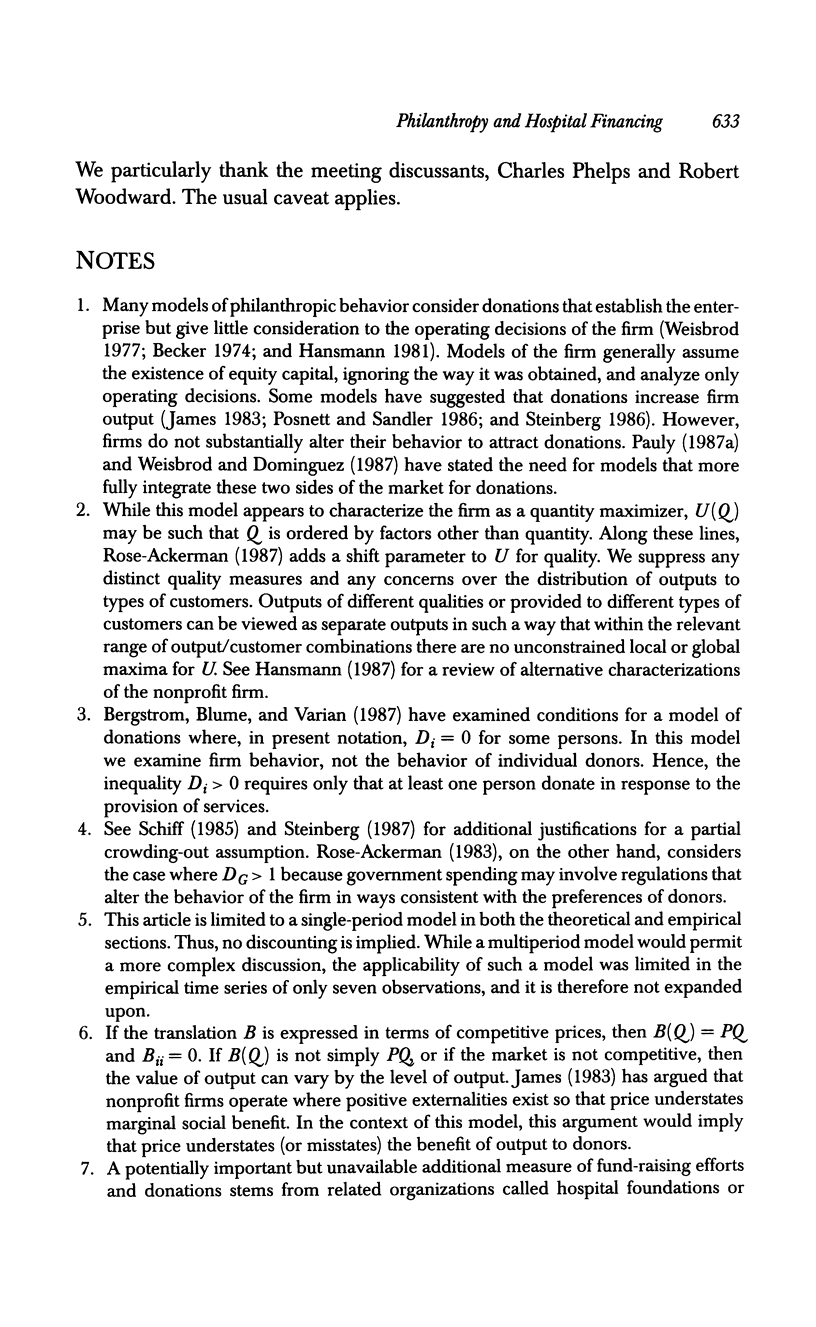
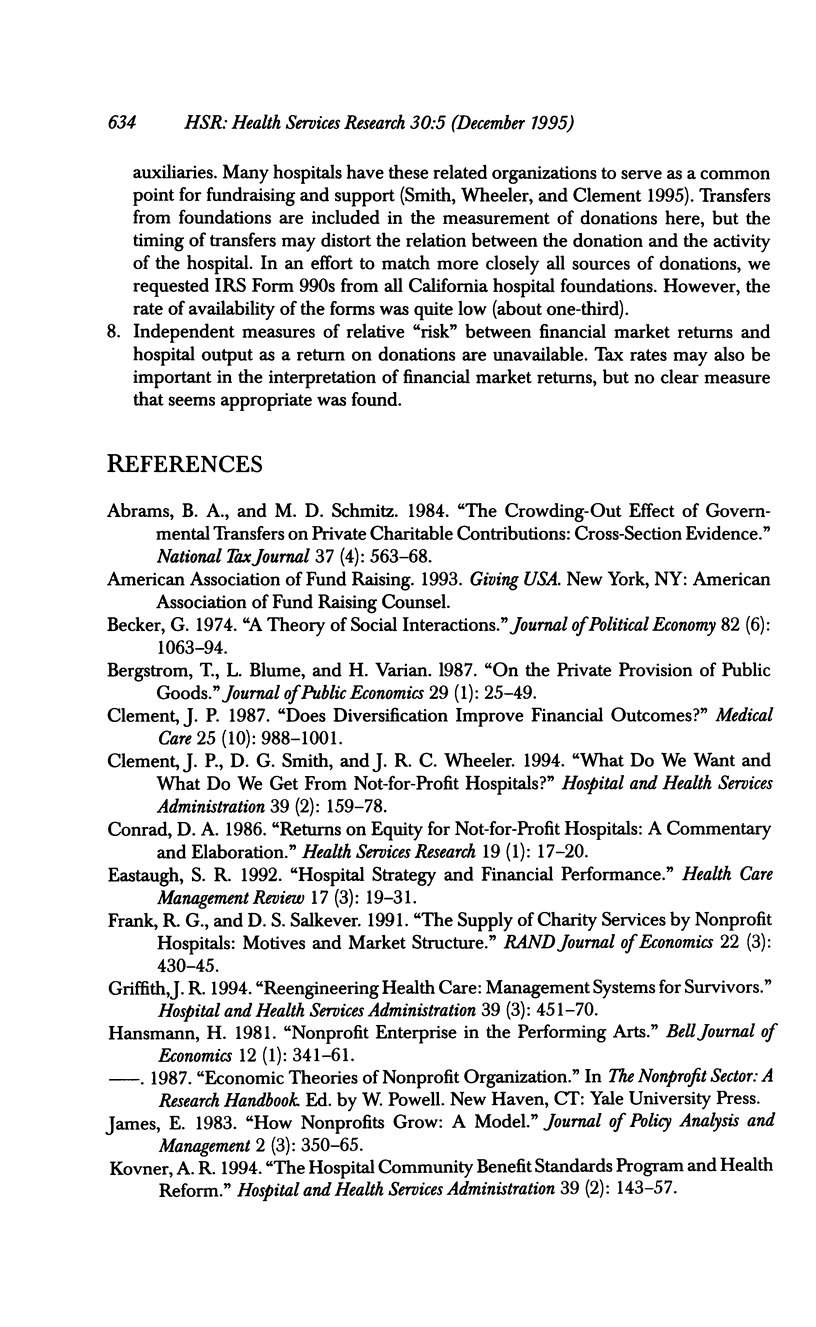
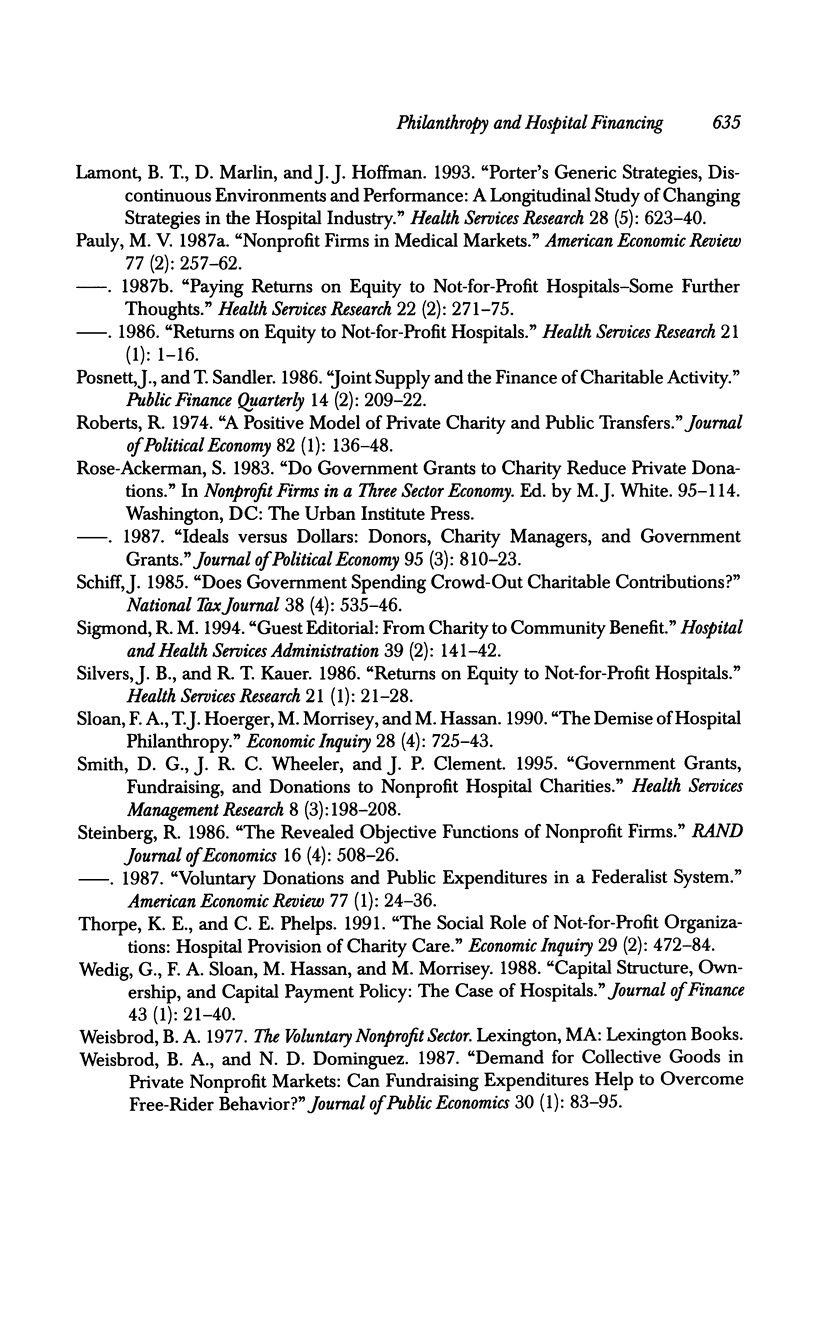
Selected References
These references are in PubMed. This may not be the complete list of references from this article.
- Clement J. P. Does hospital diversification improve financial outcomes? Med Care. 1987 Oct;25(10):988–1001. doi: 10.1097/00005650-198710000-00007. [DOI] [PubMed] [Google Scholar]
- Clement J. P., Smith D. G., Wheeler J. R. What do we want and what do we get from not-for-profit hospitals? Hosp Health Serv Adm. 1994 Summer;39(2):159–178. [PubMed] [Google Scholar]
- Eastaugh S. R. Hospital strategy and financial performance. Health Care Manage Rev. 1992 Summer;17(3):19–31. [PubMed] [Google Scholar]
- Frank R. G., Salkever D. S. The supply of charity services by nonprofit hospitals: motives and market structure. Rand J Econ. 1991 Autumn;22(3):430–445. [PubMed] [Google Scholar]
- Griffith J. R. Reengineering health care: management systems for survivors. Hosp Health Serv Adm. 1994 Winter;39(4):451–470. [PubMed] [Google Scholar]
- James E. How nonprofits grow: a model. J Policy Anal Manage. 1983 Spring;2(3):350–365. [PubMed] [Google Scholar]
- Kovner A. R. The hospital community benefit standards program and health reform. Hosp Health Serv Adm. 1994 Summer;39(2):143–157. [PubMed] [Google Scholar]
- Lamont B. T., Marlin D., Hoffman J. J. Porter's generic strategies, discontinuous environments, and performance: a longitudinal study of changing strategies in the hospital industry. Health Serv Res. 1993 Dec;28(5):623–640. [PMC free article] [PubMed] [Google Scholar]
- Pauly M. V. Nonprofit firms in medical markets. Am Econ Rev. 1987 May;77(2):257–262. [PubMed] [Google Scholar]
- Smith D. G., Wheeler J. R., Clement J. P. Fundraising, government grants and donations to nonprofit hospital charities. Health Serv Manage Res. 1995 Aug;8(3):198–208. doi: 10.1177/095148489500800305. [DOI] [PubMed] [Google Scholar]


